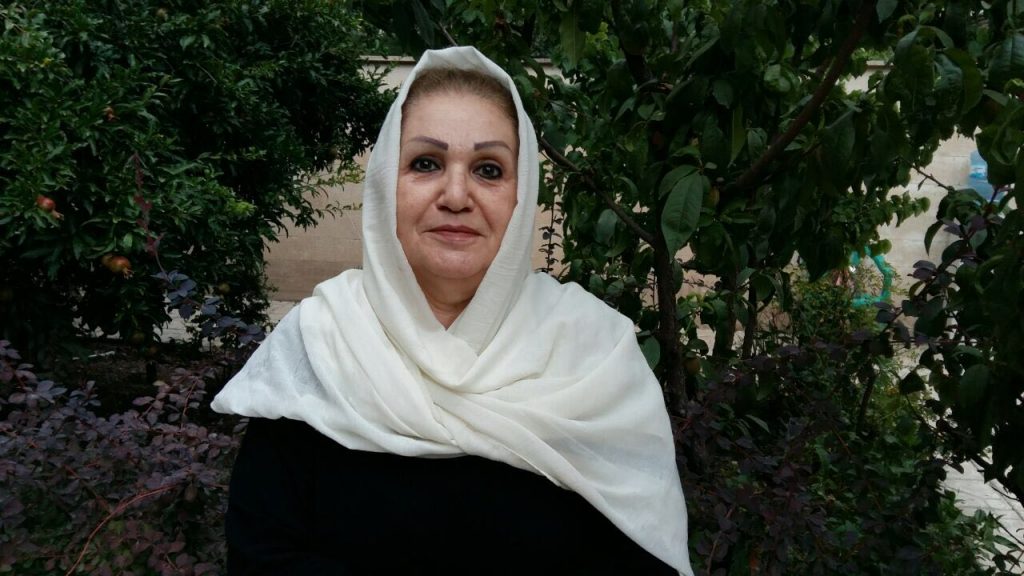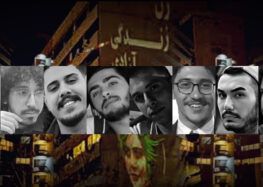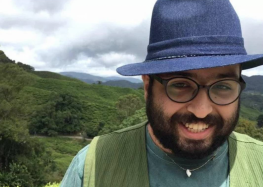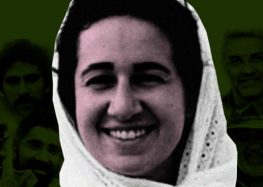Intelligence Ministry Arrests Woman For Asking About Brother and Infant Niece’s Disappearance
Raheleh Rahemipour has been arrested by the Intelligence Ministry in Iran for refusing to give up her search for answers about her missing brother and infant niece, whom Rahemipour says disappeared after the baby was born in Evin Prison in 1984.
Rahemipour was detained at her home in Tehran on September 10, 2017, and transferred to Evin Prison, a source close to the family told the Center for Human Rights in Iran (CHRI).
“At sundown, two agents, a man and a woman, introduced themselves as agents of the Intelligence Ministry and entered the house with a judicial warrant and carried out a search,” said the source, who spoke on condition of anonymity. “They confiscated a stack of documents, two mobile phones and her laptop and took her away without answering why.”
Rahemipour has long been advocating for justice for her niece and the thousands of political prisoners who were executed in the decade after the establishment of the Islamic Republic of Iran in 1979.
In February 2017, she was sentenced to a year in prison by Branch 15 of the Revolutionary Court presided by Judge Abolqasem Salavati for attending protest gatherings and meeting the families of political prisoners. She was formally charged with “propaganda against the state.”
Rahemipour was arrested while she was awaiting the outcome of her appeal.
“Raheleh made a short phone call from prison on Monday [September 11, 2017] to say she had been interrogated the previous day and would be again today,” the source told CHRI. “She said she doesn’t know what’s going on.”
Rahemipour’s brother, Hossein, was executed in 1984 for his alleged membership in the Rah-e Karegar (Workers’ Path) party, a militant Maoist organization. The authorities never returned his body or that of his infant daughter, Golrou.
“Based on reports we have received, a day or two after Golrou was born, Evin Prison authorities separated her from her mother and a week later they claimed she had died. Her mother has been in severe depression ever since and the Rahemipour family have not gotten any answers about where their loved ones were buried,” Shadi Sadr, a human rights lawyer and the executive director of Justice for Iran, told CHRI.
In November 2016, a group of United Nations human rights experts called on Iran to drop the charges against Rahemipour and stop harassing her.
“Rather than investigating the alleged disappearance of Ms. Rahemipour’s relatives, the government of Iran has decided to launch a campaign of harassment and intimidation against her,” said the statement.
“We are concerned that the judicial process against Ms. Rahemipour may be a direct reprisal for her human rights activism in the search for her relatives, as well as the exercise of her rights to peaceful assembly and freedom of expression,” added the experts.
In September 2016, Rahemipour told CHRI that the Iranian authorities had tried to pressure her to give up her search for justice.
“The authorities wanted me to promise that I wouldn’t continue these activities, but I refused,” she said. “I just want to know what happened to my niece and where she was buried. I won’t stop until I get the answer.”






